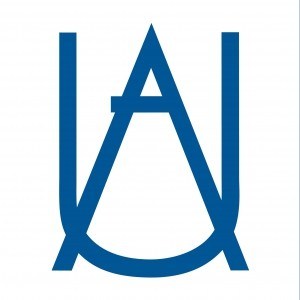Photos of university / #cambridgeuniversity
"Real estate is a dynamic and multifaceted sector that plays a vital role in shaping urban environments and economies worldwide. This programme at the University of Cambridge offers students an in-depth understanding of the principles and practices underpinning the real estate industry. Designed for individuals interested in property development, management, valuation, finance, and investment, the curriculum combines rigorous academic theory with practical application, preparing graduates to excel in various roles within the real estate field. Students will explore an array of topics including property law, urban planning, sustainability, market analysis, and financial modelling, equipping them with the analytical skills and ethical awareness necessary for responsible decision-making in real estate. The programme features a blend of lectures, seminars, case studies, and industry placements, fostering interactive learning and real-world experience. Students are encouraged to engage with industry professionals and participate in applied projects that address contemporary challenges like housing affordability, environmental sustainability, and smart urban development. The faculty comprises experienced academics and industry practitioners who provide insights into current trends and emerging opportunities within the property sector. Graduates of this programme will possess a comprehensive understanding of real estate markets, a global perspective, and strong research capabilities, enabling them to pursue careers in property consultancy, investment analysis, planning authorities, property development firms, and academic research. With a reputation for academic excellence and close links to the property industry, the Cambridge real estate programme prepares students for impactful careers that contribute to sustainable urban growth and economic development worldwide."
The course has a number of themes running through it that reflect some of the key trends shaping the industry:
- The interaction between the economy and real estate markets
- Globalisation and its influence on the market
- Risk management and mitigation
- The impact of technological change on real estate
- Sustainable buildings and cities
The programme is of a modular design and delivered through a combination of distance learning, with course materials, in various mediums, released through a Virtual Learning Environment (VLE) and attendance at five intensive residential blocks in Cambridge (3 x 2 weeks and 2 x 1 week), over the two years.
The course is taught through a combination of:
- Taught sessions by academics and practitioners
- Individual work including: working through course materials on the VLE, course reading, preparation of written work (primarily between the residential sessions).
- Group work including: working through case studies, dialogue, debate and presentations throughout the taught modules.
- Supervisions and support from the Land Economy faculty, tutors and supervisors from within the university.
Residential sessions focus on taught sessions, practical applications, case studies and collaborative working, including presentation of project work and case studies, as well as individual supervisions. The residential sessions enable students to learn from one another as well as from the academic faculty staff and external speakers.
Support and facilitation for students is provided by team of faculty, tutors and supervisors from within the University.
Contact time
- Lectures: c.160 hours of lectures over the two-year course*
- Seminars and classes: 20 hours of managed discussions, debates and group exercises/workshops (in addition to those included in the lecture hours) over the two-year course
- Practicals: 8 site and property visits over the two-year course, equating to c.40 hrs
- Supervision: up to 7 hours per year
* The number of hours may vary slightly as the course is constantly evolving in order to meet developments in the sector and in response to student and industry feedback. The lectures are intended to be interactive discussions with the lecturer.
Assessment
Thesis
- Dissertation: 12,000 words maximum (including footnotes and appendices but excluding bibliography), to be completed during the second year of the course.
Essays, projects and written papers
- Three short case study assessment exercises, each of 2,500 words maximum.
- Three essays, each of 3,000 words maximum.
Practical
- There is no formal summative assessment of students practical work throughout the course but students will receive formative feedback on presentation of projects and case studies.
Other
- Full and active participation in all elements of the course is compulsory.
Feedback
Students receive regular feedback throughout the course, formal and informal, individual and group, during face to face supervisions and through written exchanges with their supervisors and the Director of Studies.
First year tutors/supervisors complete an annual progress report at the end of Year 1. Dissertation supervisors provide termly reports in Year 2. Students are also given feedback on presentation of their projects and case studies during the residential sessions.
Expected academic standard
Applicants should normally have a relevant UK first or good upper second class honours degree or overseas equivalent. In addition, students joining the MSt course will typically have experience* expected to be of a minimum of three years and, in some cases, a professional qualification in the discipline. They are therefore deemed to have achieved an acceptable level of knowledge and skills in order to meet entry requirements for the course.
Those applicants who do not meet the standard entry criteria, but have alternative qualifications or experience and have the potential to bring valuable assets to the programme, will be evaluated on an individual basis and may be required to provide further materials in support of their application. As applicants are expected to have experience and successful track records in industry, consideration may be given to candidates on the strength of their vocational experience, in lieu of the normal standard entry requirements.
* At least three years of professional experience in a relevant industry: in finance, investment, real estate and the more general built environment professions.
Language requirement
- IELTS Academic: Overall score of 7.5 (a minimum of 7.0 in each individual component)
- TOEFL Internet: Overall score of 110 (a minimum of 25 in each individual component)
Supporting documents
- References
- Transcripts
- Research Section
- Curriculum Vitae. You will be required to submit your CV on application. This should demonstrate at least three years’ experience in a relevant industry: in finance, investment, real estate and the more general built environment professions.
- Professional Qualifications. You should include details of any relevant professional qualifications or memberships in support of your application under the ‘Professional Qualifications’ section of the application form. You will also need to provide documentary evidence, stating the date the qualification or membership was obtained.
- Personal Statement. An separate personal statement is not required but you should ensure that you have included all information in support of your application under the ‘Other Information’ section of the application form.
- Letter of Support from your Employer. If a student will be in employment during his/her studies, a letter from the student's employer is required stating that they support the application and understand/accept that in undertaking the course some time away from work to attend the residential sessions will be required.
The financing of the Real Estate program at the University of Cambridge is designed to provide students with a comprehensive understanding of the financial aspects integral to the property sector. Tuition fees for this program are set annually and vary depending on the student's residency status and specific course components. Domestic students benefit from funding opportunities such as government loans and grants, which can cover up to the full cost of tuition. International students are responsible for their fees but can seek alternative funding sources including scholarships, student loans, and sponsorships offered through international organizations and private foundations. The university's financial aid office provides detailed guidance on available scholarships, some aimed specifically at students pursuing real estate and related fields, which can substantially offset tuition expenses.
In addition to tuition fees, students should budget for living expenses, including accommodation, food, transportation, and personal costs, which vary based on individual circumstances and lifestyle choices. Cambridge offers numerous accommodation options, some of which include rent costs and amenities that impact overall expenses. Many students choose to secure scholarships and bursaries awarded on academic merit, financial need, or specific characteristics, which reduce the overall financial burden. Furthermore, the university encourages students to explore external funding opportunities such as government grants, private scholarships, and sponsorship programs from industry partners.
Students engaging with the program may also have access to work-study opportunities and internship placements that offer stipends or part-time work, helping to finance their studies further. The university provides detailed financial planning resources to assist students in budgeting effectively throughout their course duration. Payment plans are often available, allowing students to distribute tuition payments across several installments to ease financial pressure. As the program prepares students for careers in real estate investment, development, and management—sectors with varying salary expectations—the financial aid package is structured to support students during their studies while also facilitating entry into the workforce upon graduation. Overall, the financing options for the Cambridge Real Estate program are tailored to support a diverse student body and emphasize accessibility, affordability, and financial planning expertise.
The University of Cambridge offers a comprehensive program in Real Estate, designed to equip students with a broad understanding of the property market, property management, valuation, and development processes. This programme is typically part of the Department of Land Economy, which integrates principles from economics, law, and environmental sciences to provide a multidisciplinary approach to real estate studies. Students engage with core topics such as property investment, asset management, urban planning, and sustainable development, gaining both theoretical knowledge and practical skills necessary for a successful career in the property sector.
The coursework often includes modules on real estate finance, market analysis, property law, and planning regulations, enabling students to develop a nuanced understanding of the legal and financial aspects influencing property markets. Through lectures, seminars, and project work, students learn to analyze property valuations, assess market risks, and develop strategic investment plans. The program also emphasizes ethical considerations and sustainability, preparing graduates to address contemporary challenges in urban development and environmental impact.
Students may have the opportunity to participate in site visits, internships, and research projects, fostering direct engagement with industry professionals and real-world applications. The programme aims to produce graduates who are capable of working in various roles within real estate development, investment, consultancy, and policy-making sectors. Successful completion of the programme often involves a combination of coursework assessments and a dissertation, allowing students to explore specific areas of interest in depth.
Overall, the Cambridge Real Estate program combines rigorous academic instruction with practical training, preparing students to become innovative leaders and responsible practitioners in the dynamic and evolving property industry. The programme benefits from the university’s global reputation for academic excellence and strong links with the industry, offering students valuable networking opportunities and access to cutting-edge research and insights in the field of real estate.










